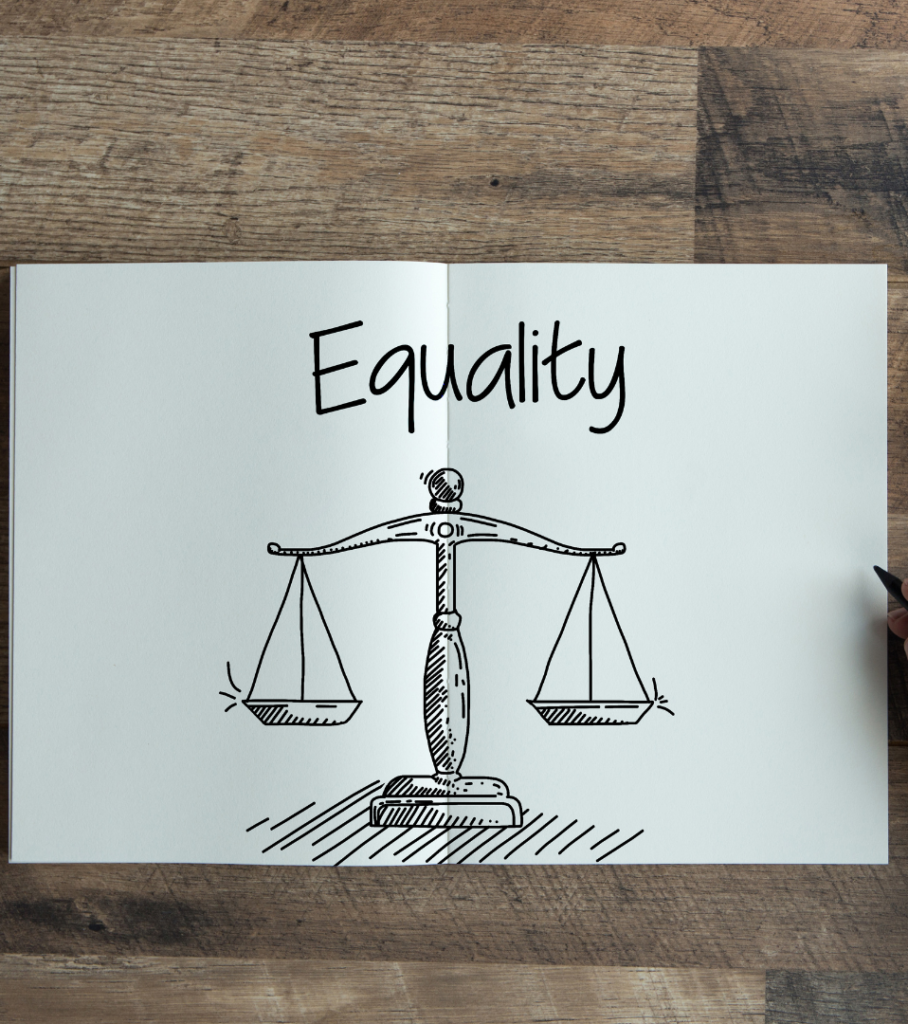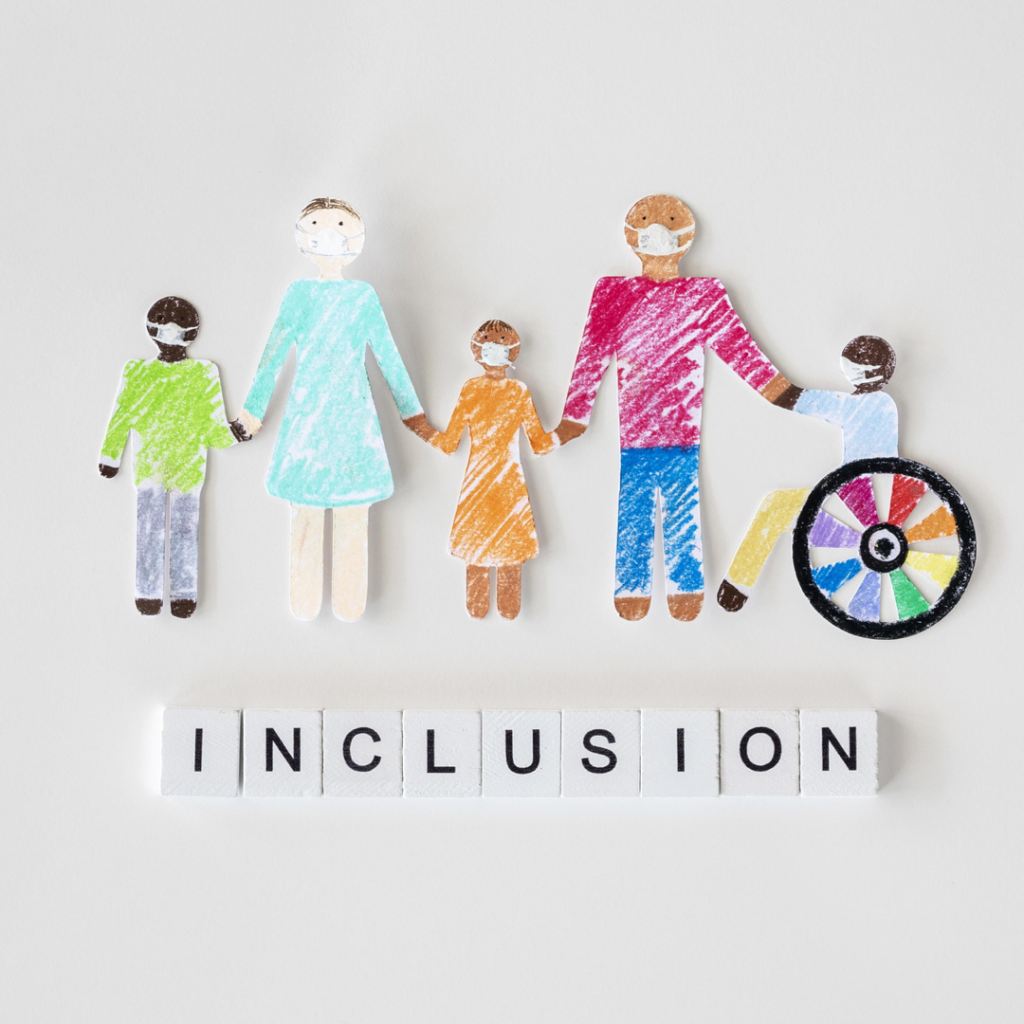About Us

” I am of mixed-heritage and a mother of three young children, working in the construction industry. After 10 years of being a minority, where I felt forced to conform, I decided that it is time to accept reality and try to facilitate change, encourage awareness and open more roles for minorities alike myself and others, so that the industry can become a place where all colours, ages, genders and circumstances are comfortable to create a sense of belonging, where everyone can fit in and build career.”
CEO Krystal Doe
Principles
We have designed the principles of The Equality Community to facilitate change within industries which employ large groups of minorities, as well as strive to promote the inclusion of all genders, races and working families.
Our Purpose
Expanding Parent-Friendly Roles
We are working with companies to provide working parents with flexible and family-friendly roles. An example of this is altered contracts, which are more considerate of individual circumstances, commitments and include more flexibility regarding time off, as well as provide additional holiday options. Another example is increased flexibility towards employees when dependents become unwell or additional time off is needed for school commitments.
It is widely known that trying to structure work commitments around the obligations that come with being a parent is extremely stressful. Unfortunately, the general rules within companies across the UK regarding holidays and leave are universally applied to all employees, without consideration of those with dependants. We know that it is not only when the employees themselves are sick that time off is needed, but when their children are unwell also. These are important matters that companies should be aware of. We are working with companies to create a better understanding of how roles can cater for parents, as there will always be spontaneous and unpredictable issues that occur when children are involved.
It is important to recognise that many employees are also often full-time parents. This should not hinder anyone’s opportunity to work in specific industries, especially in the case of single working parents. We also offer training to companies to have an understanding to phycological factors that occur while being a parent with dependents and working under pressures that mirror a single lone employee may make employees feel overwhelmed. Understanding your employees is an essential tool in creating more productivity in the work place.
Expanding and Diminishing Gender-Specific Roles
We are working to provide a direct service to industries that have a significant lack of gender equality and create more of a balance. For example, we aim to support more female plumbers, construction workers and train drivers, as well as male secretaries and nurses. Statistically, vehicle technicians, electricians and mechanics are male-dominated jobs, with an estimated 98% of these jobs held by men. This means that only 2% of these roles are occupied by women. Construction and building trades are also male-dominated fields – 96.83% of these roles are held by men. Painters and decorators are also primarily male-dominated at 96.32%. This is not due to a lack of women that want these jobs but the convention that these are men’s domains. This in turn creates social issues due to the stigma that surrounds these industries. For example, a woman starting a job in a male-dominated field or a male starting in a female-dominated field may feel isolated, which can create a sense of anxiety and causes stressors and in turn can affect work quality. Another impact of this is that opposite genders in these industries have less comprehension or awareness of situations involving their female/male co-workers, such as pregnancy or a working parent.
There is a lack of training and understanding in these situations, which creates an uncomfortable atmosphere for genders in these careers. Another example is a large proportion of male nurses feel stereotyped and less respected. We work with companies, individuals and establishments towards being stigma free.
There are stigmas involved within female and male dominated industries that have created a divide. As a result, employees suffer from stress and increased pressure. A lot of individuals are deterred from pursuing opposite-sex-dominated work due to embarrassment, lack of support and the fear of the unknown and the sense of isolation due to their gender. Our business intentions include minimising these gaps in employment and helping industries achieve a greater balance.
Expansion in Race-Dominated Roles
We are working with industries with inequalities in their workforce and recognise that there is a long way to go. For example, an estimated 6% of employees in the construction industry are members of the BAME community with less than 1.5% being at the board/management level. It is clearly imperative that these industries collaborate to support change. This, of course, must come with the recognition of the reality of what we are working with in these industries.
Many companies are hesitant to advertise their positions to the BAME community directly, as they believe that this may be a form of discrimination. However, this is incorrect under the current legislation. The Equality Act 2010 allows employers to recruit on this basis when it is reasonable to do so, such as when a potential employee suffers a disadvantage connected to their protected characteristic or when employees with that characteristic are at disproportionally low employment levels within the company.
Our question is why, why is this not being done? Or if so, why not enough?
We endeavour to ensure that these positions are created and filled to promote equality correctly and fairly. Help us to role out these questions.
Expanding Roles for People with Disabilities
Much more sectors in 2021 have focused on working with people with disabilities; however, this does not seem to be the case as such in industries like Construction, Real Estate, Financial Service and Agriculture. The most alarming situation in employment is Disabled people are more likely to be working in small and medium size companies, than larger employers containing more the 250 employees. Further more Disabled people are less likely to work in the private sector with the majority being employed in the public sector.
We are working with companies to create a broader spectrum for employees with disabilities using an ethically designed employment plan tailored to each person, as disabilities are all different and present in a variety of ways. A person with a mental or physical disability may need tailored accessibility for their individual role. We believe that every employee must play an equal role regardless of any individual differences.
Have a Project on mind?
We can help you bring your ideas to life. Let’s talk about what we can build and raise together.

Let Us Together Build a Flourishing Business
When connected with us, you aren’t growing and bettering your business alone. We have your back and put in our best to contribute to the growth of your entire team and organization. So, if you are looking for the right agency that’ll help you build a good online presence and bring in more conversions and revenue, we are right here!
